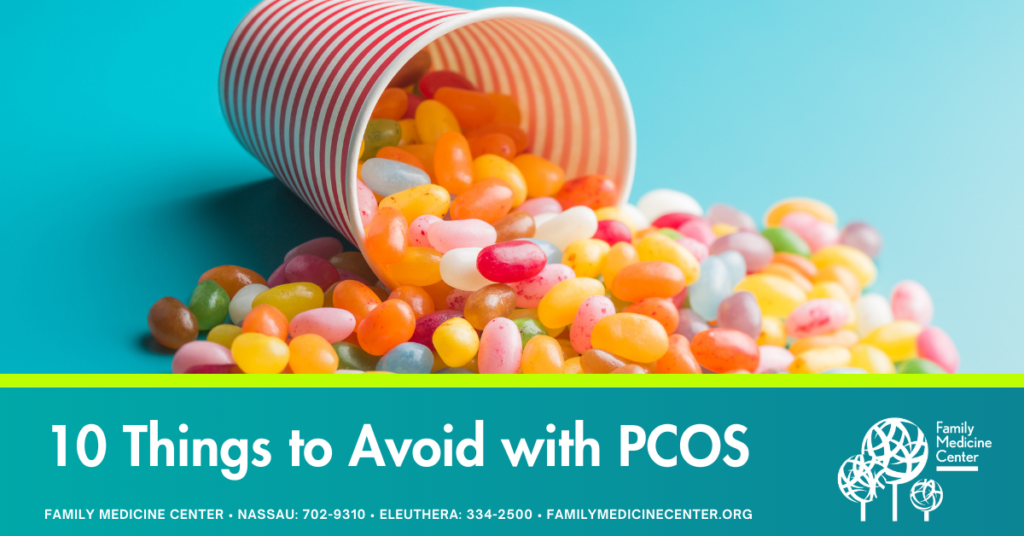If you have PCOS, there are several things you should consider avoiding or managing carefully.
PCOS or Polycystic Ovary Syndrome is a hormonal disorder that affects the ovaries and can cause various symptoms, including infertility, weight gain, acne, and excess hair growth. Management often involves lifestyle changes, medication to regulate hormones, and, in some cases, fertility treatments. If you’re diagnosed with PCOS, here are several things you should consider avoiding or managing carefully, although it’s best to consult with your healthcare provider on what will work for you.
High-Sugar Foods: Limit your intake of sugary foods and beverages as they can lead to insulin resistance, which is common in PCOS.
Processed Foods: Reduce consumption of highly processed and fast foods, which often contain trans fats and unhealthy additives.
High-Glycemic Index Carbohydrates: Opt for complex carbohydrates with a lower glycemic index to help stabilize blood sugar levels.
Excessive Caffeine: While moderate caffeine intake is generally okay, excessive caffeine may affect hormone balance and sleep, which can exacerbate PCOS symptoms.
Dairy Products: Some women with PCOS find that dairy products worsen their symptoms, so consider reducing or eliminating dairy from your diet if it seems to have an adverse effect.

Saturated and Trans Fats: Minimize the intake of saturated and trans fats found in fried foods, fatty cuts of meat, and certain cooking oils.
Stress: High stress levels can exacerbate PCOS symptoms, so practice stress-reduction techniques such as meditation, yoga, or deep breathing exercises.
Sedentary Lifestyle: Regular physical activity can help improve insulin sensitivity and hormonal balance. Aim for at least 150 minutes of moderate exercise per week.
Smoking and Excessive Alcohol: Both smoking and excessive alcohol consumption can worsen PCOS symptoms, so it’s best to avoid or limit these habits.
Irregular Meal Times: Try to maintain regular meal times to help regulate insulin and hormone levels.
Remember, it’s essential to consult with a healthcare professional or a nutritionist who specializes in PCOS management. They can provide personalized guidance tailored to your specific needs and goals. Schedule an appointment.

